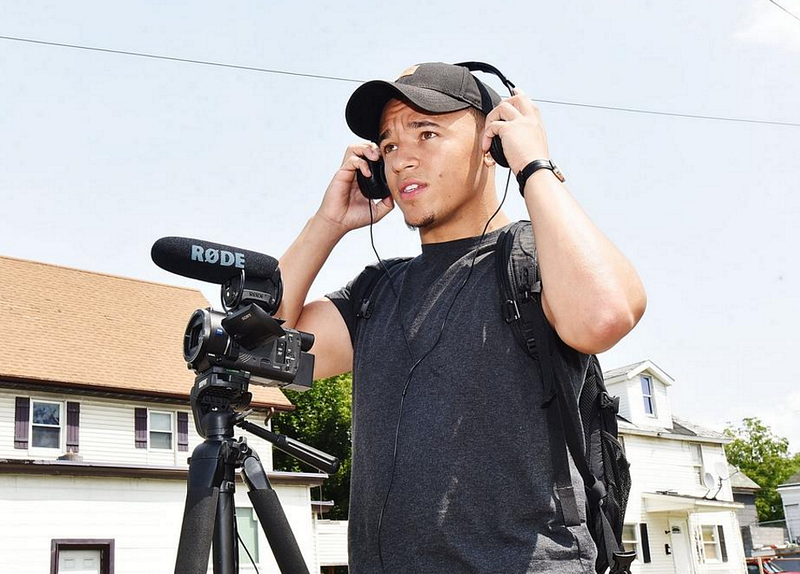
After an entire academic year in England, philosophy major Marquis Palmer ’18 returned to his hometown of Utica, New York to begin work on his 2017 Emerson project: a short-film documentary about the experience of having a loved one incarcerated.
Inspired by the experience of having his father — and so many more of his loved ones — incarcerated, Palmer decided to interview people in his community who had undergone similar experiences. More specifically, he said that his desire to focus on mass incarceration struck him during his first semester abroad at Oxford University. At Hamilton, Palmer had regularly heard about people he knew being locked up, something that has always been front and center in his life. Being at Oxford in such a drastically different context, however, caused him to receive similar news in a different, unexpected way.
“On one hand, [I was] at one of the Western world’s most lauded institutions of higher learning studying Philosophy, of all things,” he commented. “On the other hand, my best friends and family members [were] getting locked up in prison. It was me experiencing this at Oxford that drove me to ask, ‘How are other people dealing with this psychologically, emotionally and even financially?’”
In thinking about a way to answer this question, Palmer reached out to Professor Doran Larson of the Literature and Creative Writing Department at Hamilton. Professor Larson is known for his classes specialized in prison writing and prison issues, having also published many pieces on the topic of incarceration. Larson agreed to advise Palmer’s Emerson project.
“One aim of the project is to contribute to the public’s understanding of how mass incarceration impacts communities,” Palmer commented. “What we don’t often stop and consider are the ways in which the loved ones back home are impacted once that person is incarcerated. Simultaneously, I want to elicit local discussion, and ultimately, action, toward addressing mass incarceration in Utica.”
While Palmer does not necessarily envision himself putting filmmaking or documentaries at the forefront of his future, he does hope to continue focusing on the “penal philosophy underpinning the propagation of mass incarceration.” Eventually, he wants to do both legal work (as an attorney representing the formerly incarcerated) and philosophical work (engaging in legal research on issues of mass incarceration and potentially examining the impact it has on communities).
As a philosophy major, Palmer is often asked how his extremely sociologically-based project with an artistic medium came to fruition. He cites Socrates, who states, “the unexamined life is not worth living.” Similarly, Palmer wanted to pose this imperative issue on society, and not just one individual.
“If you want to live in a worthy society, subject it to critical examination so that you scrutinize its worst element in order to push it to become a better version of itself — that’s what my project is about,” he explained “It’s about focusing on the issue of mass incarceration — a sordid aspect of our society — in order to get people to address it, rid it and thereby push society to become a better version of itself.”
Palmer hopes to present the finalized documentary to the Hamilton community at a screening in mid-to-late spring. He also hopes to show his piece to those in the Utica community and even an online audience.

























